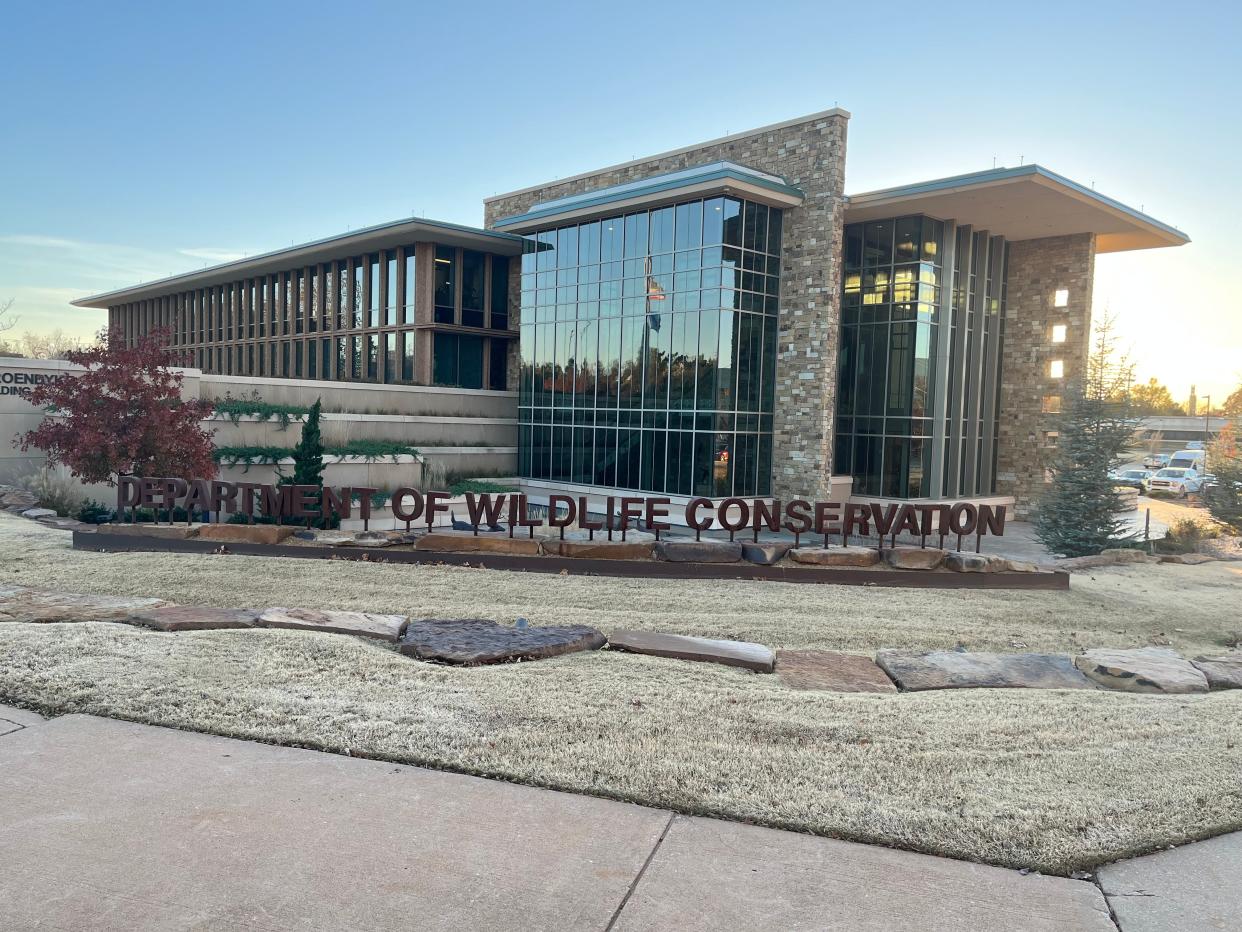Oklahoma wildlife board blocks release of severance agreement with former director

The state wildlife department’s governing board voted unanimously Monday to continue to block the release of the severance agreement it negotiated with its former executive director.
Such a public vote is unusual, open records advocates said. The move raises questions about why the eight-member board is taking additional steps to try to block Oklahomans’ access to a record that could shed light on why taxpayers are reportedly funding a six-figure settlement as part of J.D. Strong’s abrupt resignation, they said.
“It certainly seems really unusual for a public body to go out of their way to let everyone know that they want to keep a record out of the public’s hands,” said Kurt Gwartney, executive director of Freedom of Information Oklahoma, which advocates for open government and access to public information.
He said Monday’s vote by the Oklahoma Wildlife Conservation Commission to maintain the confidentiality of the severance agreement and the reasons cited for the decision raise questions about Strong’s abrupt departure, which officials have said was voluntary.
Gwartney said the record should be released, and there are other ways to comply other than just issuing a blanket denial.
Oklahoma Voice last month filed an open records request seeking a copy of the agreement along with how much severance Strong would be paid as part of his resignation.
More: Director of the Oklahoma Department of Wildlife Conservation resigns after special meeting
Citing a provision of the state’s open records law that gives a public body “the sole discretion” to keep personnel records confidential that deal with “internal personnel investigations,” the Department of Wildlife Conservation denied Oklahoma Voice’s request for a copy of the agreement. The agency also refused to reveal how much the commission planned to pay Strong until after the funds were disbursed.
The Tulsa World previously reported Strong, who had served as the agency’s director since 2016, will receive $169,341 in severance pay.
Board digs in on decision to withhold record
Wildlife Commissioner James Barwick said during Monday’s meeting that it should be a preferred employment practice not to disclose personnel records.
Barwick said if such records are opened to public inspection, it would chill the reviews that go on between supervisors and employees and “affect the free flow of information back and forth.” He made the motion to keep Strong’s personnel records confidential.
When a commissioner asked Deputy Attorney General Niki Batt if the board has the option of waiving the contract’s confidentiality clause without Strong’s consent, she said the question is governed by a provision of the Open Records Act dealing with personnel records.
She said state law allows the release “at the sole discretion of the public body” and said the board “may keep” confidential items related to internal personnel investigations. Batt said it’s within the authority’s “right to determine” whether to maintain confidentiality.
Commissioner Jess Kane said the last thing he wants to do is “draw unnecessary attention to the situation.”
“I feel that the commission has received some profoundly unfair criticism for its handling of this,” Kane said. “There are real concerns with turning over this type of personnel records. And, I think there are even contractual reasons why that shouldn’t be done.”
Kane said the board has been criticized in the press for “following a policy which would be totally unremarkable to any private business,” which is specifically allowed by the Open Records Act, and which may well be required by the terms of a contract that was “negotiated, drafted and approved by the Attorney General’s Office.”
A spokesperson for Attorney General Gentner Drummond said Drummond believes Kane’s remarks about requiring the contract be kept confidential are inaccurate. The board may have the discretion to block the release of a record, but it’s not required.
Drummond believes in public transparency in this situation, the spokesperson said.
Advocate questions lack of transparency
The wildlife commission is not a private business, said Joey Senat, an Oklahoma State University associate professor who specializes in Oklahoma’s open records law.
“They don’t understand that they are public servants, and they have an obligation to follow not only the letter of the Open Records Act but the purpose of it, which is to allow Oklahomans to know what their government is doing,” he said. “That’s the basic purpose of the statute. They are not a private business, and if they don’t understand that, they shouldn’t be serving on a public board.”
Senat said government bodies cannot “contract away” the public’s right to know by entering into agreements to keep things confidential.
“Under the Open Records Act, contracts should not be secret,” he said.
If boards and commissions are allowed to keep contracts secret, they could enter into agreements “all the time to protect themselves, to hide corruption, to hide incompetency, their incompetency, their corruption,” Senat said.
And if the Wildlife Commission’s decision holds, that would potentially mean every contract every university football coach signs in the state could suddenly become classified as personnel records exempt from disclosure, he said.
Oklahoma Voice is part of States Newsroom, a nonprofit news network supported by grants and a coalition of donors as a 501c(3) public charity. Oklahoma Voice maintains editorial independence. Contact Editor Janelle Stecklein for questions: info@oklahomavoice.com. Follow Oklahoma Voice on Facebook and Twitter.
This article originally appeared on Oklahoman: OK wildlife board votes to withhold severance agreement of J.D. Strong

